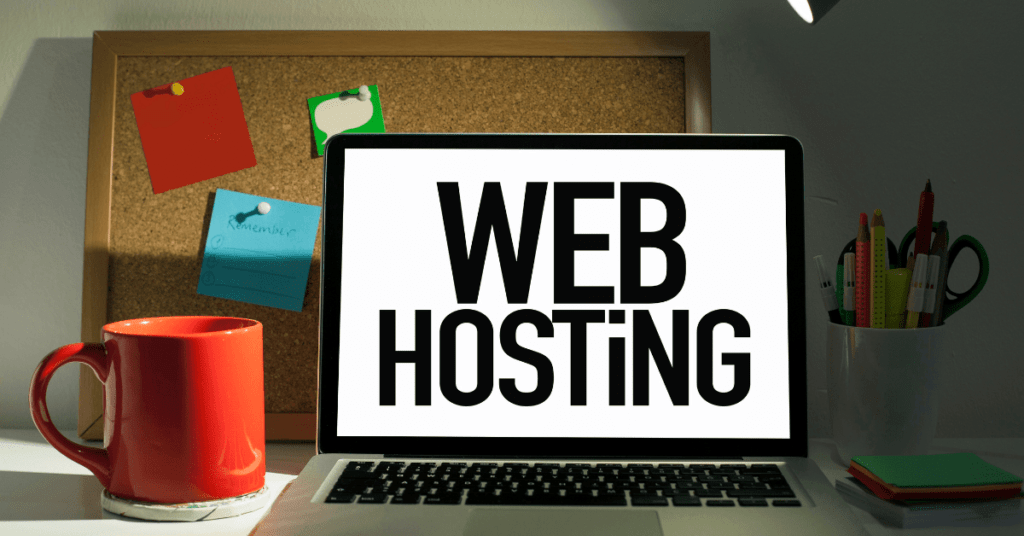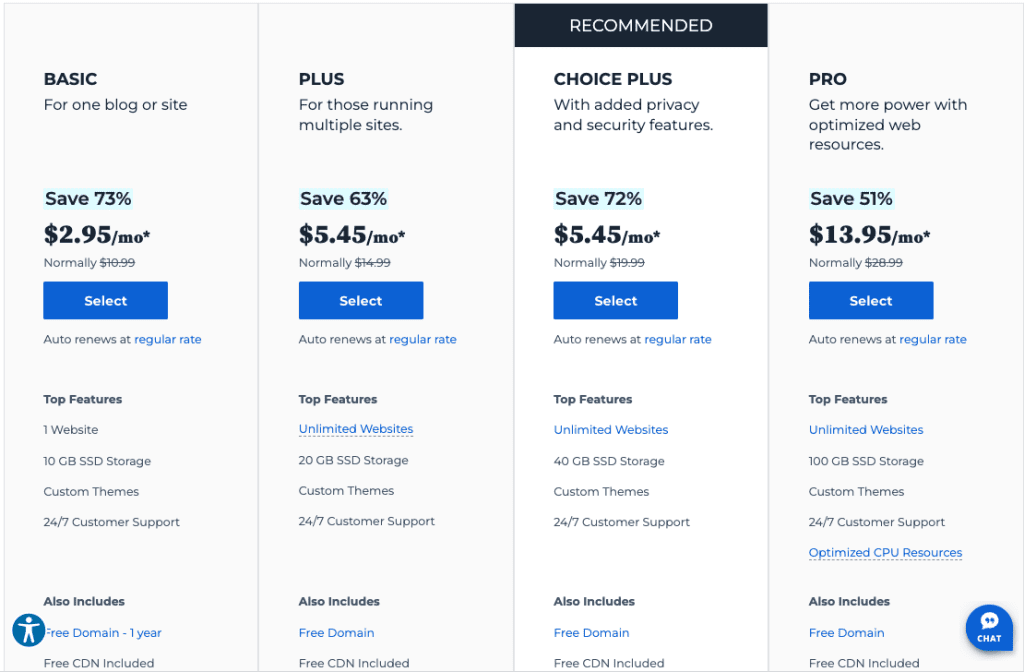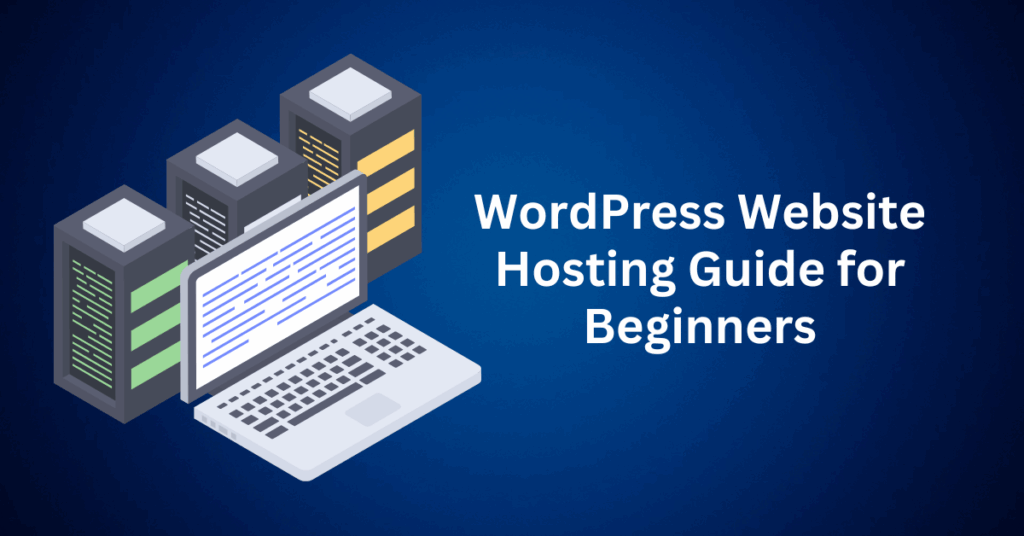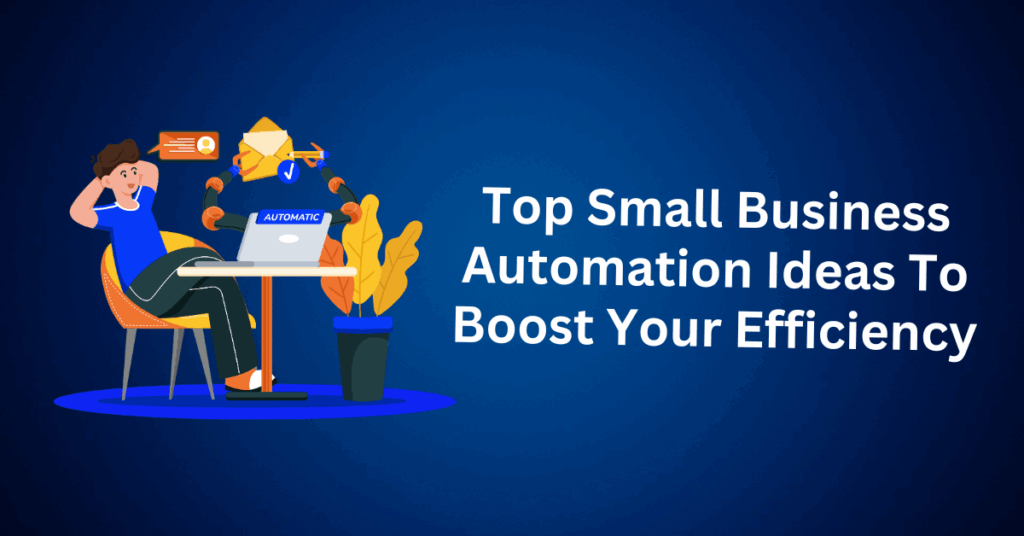Whether you’re launching a business, building a blog, or creating a digital portfolio, having a professional website is essential. But before you dive into designing pages or picking colour schemes, there’s one crucial step you can’t afford to skip: choosing the right web hosting. Web hosting is what powers your website behind the scenes. It’s the technology that stores your site’s content and delivers it to visitors whenever they type your domain into their browser. Without reliable hosting, your site can’t go live and if your hosting isn’t fast or secure, your visitors won’t stick around.
In simple terms, hosting gives your website a home on the internet. Just like a physical storefront needs a location, your digital presence needs a server to “live” on. This server stores your images, code, and content so people can access your site from anywhere in the world.
If you think web hosting is just a technical detail, think again. According to recent research from Statista, the global web hosting market is projected to grow to $192.85 billion by 2025. That kind of growth isn’t happening by accident. More businesses, entrepreneurs, and creators are realizing that choosing the right hosting service directly impacts their site speed, uptime, security, and scalability.
What Is Website Hosting?
At its core, website hosting is a service that enables individuals and businesses to publish a website or web application on the internet. In simple terms, when a visitor enters your URL (such as www.yourwebsite.com), the hosting provider retrieves the site data from a server and then displays it in their browser.

To put it another way, think of hosting like renting storage space online. Your website’s text, images, and design files all need a physical place to live. This is where hosting companies come in. They manage these storage systems, known as servers, and in addition, provide tools to ensure your site stays up and running efficiently.
What Do You Need to Host a Website? 3 Essentials for a Successful Launch
If you’re ready to bring your website to life, it’s important to understand what’s required to host it properly. Whether you’re starting a blog, building an online store, or creating a portfolio, a few foundational pieces need to be in place before your site can go live and be accessible to the public.
Here’s a breakdown of the three essential components you need to successfully host a website:
1. A Reliable Web Hosting Provider
The first and most important element of any live website is web hosting. Think of it as the online real estate where your site’s files are stored. A hosting provider gives your website the server space it needs to be accessible to users around the world.
Without a hosting provider, your site simply can’t be seen online. When someone types in your URL, the host’s server delivers your content to their browser.
There are many hosting services available, but not all are created equal. Choosing a reliable provider can save you time, money, and technical headaches down the road. Look for a host that offers:
- Fast server speeds
- 24/7 customer support
- Security features like SSL
- Easy-to-use tools for beginners
Pro Tip: If you’re building a WordPress site, opt for WordPress-optimized hosting. Bluehost offers specialized WordPress hosting with one-click installs, free SSL, and a beginner-friendly dashboard, perfect for creators, small business owners, and bloggers.
2. A Domain Name
Next, you’ll need a domain name. This is your website’s address on the internet, like yourwebsite.com. It’s how people find you online and plays a key role in establishing your brand’s identity.
Most hosting providers allow you to register a domain when you sign up for hosting services. In fact, many, including Bluehost, offer a free domain for the first year, making it easy to get started.

When choosing a domain name, aim for something short and memorable, easy to spell and type, and clearly reflective of your brand or business. These qualities help ensure your audience can find and remember your site with ease.
If you’re unsure where to start, check out our guide on how to choose a domain name for helpful tips and strategies to find the perfect fit.
Once your domain is registered, it connects directly to your hosting account. This integration makes it easy for users to access your content on any device, anytime.
3. Website Files or a Content Management System (CMS)
Finally, for your website to function, you’ll need actual content and files. This can include written code, such as HTML and CSS, or content managed through a content management system (CMS) like WordPress.
For beginners, using a CMS is often the easiest and most flexible way to build and maintain a website. With WordPress, for example, you don’t need to write a single line of code, unless you want to. It offers a user-friendly experience that makes website creation accessible to anyone.
If you’re using a host like Bluehost, the process is even simpler. You can install WordPress with just one click, use drag-and-drop tools to design your site, and rely on automatic updates and backups to keep everything running smoothly and securely.
Comparing Website Hosting Types: Shared vs VPS vs Dedicated vs WordPress Hosting
When it comes to launching a website, choosing the right type of web hosting is just as important as the design or content. Not all hosting plans are built the same, and the option you go with will directly affect your website’s speed, security, scalability, and ease of use.
If you’re feeling unsure about where to start, this guide breaks down the four most common hosting types: shared hosting, VPS (Virtual Private Server) hosting, dedicated hosting, and WordPress hosting. Each option serves a different kind of website and user need.
Let’s explore how these hosting solutions stack up and which one is the best fit for your online goals.
Quick Hosting Comparison Table
| Hosting Type | Best For | Control | Speed | Cost | Ease of Use |
| Shared Hosting | Beginners, blogs, small sites | Low | Moderate | Low | Very easy |
| VPS Hosting | Growing sites, eCommerce | Medium | High | Medium | Moderate |
| Dedicated Hosting | High-traffic businesses | Full | Very High | High | Complex |
| WordPress Hosting | WordPress users, creators | Medium | High | Low–Medium | Easy |
1. Website Shared Hosting: The Budget-Friendly Starting Point
Shared hosting means your website is hosted on a server alongside many other websites. All users on that server share the same resources, such as CPU, RAM, and bandwidth. This type of hosting is ideal for beginners, hobby bloggers, small business websites, or anyone launching a low-traffic site. If you’re just starting out and looking for an easy, budget-friendly way to get online, shared hosting offers a straightforward and affordable solution with minimal setup required.
Pros:
- Lowest price point
- No technical knowledge required
- Often includes free domain name, SSL, and email hosting
Cons:
- Limited performance. Sites can slow down due to shared traffic
- Little control over server settings
- Not ideal for growing or high-traffic websites
2. Website VPS Hosting: A Powerful Upgrade for Growing Sites
VPS (Virtual Private Server) hosting provides you with a dedicated portion of a physical server. While you still share the server with other users, your resources such as CPU, RAM, and storage, are allocated specifically to you, giving you more stability, performance, and control. VPS hosting is well-suited for growing businesses, online stores, or tech-savvy users who need more power and flexibility than shared hosting can offer. If your website is starting to outgrow shared hosting, or if you need enhanced security, faster load times, and some level of server customization, VPS hosting offers a balanced solution that delivers more performance without the higher cost of a dedicated server.
Pros:
- Dedicated resources for better reliability and speed
- More control over software and configurations
- Ideal for scaling websites and custom applications
Cons:
- Requires basic server management knowledge (unless managed)
- More expensive than shared hosting
- Some maintenance responsibilities may fall on you
3. Website Dedicated Hosting: Full Control and Maximum Performance
Dedicated hosting means your website is hosted on its own physical server. You don’t share resources with anyone. Everything from CPU power to bandwidth is exclusively yours. This type of hosting is ideal for high-traffic websites, large-scale applications, or businesses with complex hosting requirements and custom infrastructure needs. If you need maximum performance, reliability, and full control over your server environment, and budget isn’t a major concern, dedicated hosting offers the highest level of power, customization, and uptime.
Pros:
- Entire server to yourself = maximum performance
- Full customization and control over settings
- Supports large traffic volumes with minimal downtime
Cons:
- High cost. Usually, the most expensive option
- Requires advanced technical skills
- Overkill for small or medium websites
4. WordPress Website Hosting: Built for Simplicity and Speed
WordPress hosting is a type of web hosting that’s specifically optimized for WordPress websites. It typically comes in two forms: shared WordPress hosting, which is more budget-friendly, and managed WordPress hosting, which includes additional features and support tailored to WordPress users. This hosting option is ideal for bloggers, freelancers, creators, and businesses that use WordPress as their content management system. If you’re building your site on WordPress, this hosting type simplifies the process by handling technical aspects like performance tuning, security, and automatic updates, allowing you to focus more on content and less on maintenance.
Pros:
- Pre-configured for peak WordPress performance
- Managed plans handle updates, backups, and security
- Beginner-friendly with tools like drag-and-drop builders
Cons:
- Not suitable for non-WordPress websites
- Can limit certain plugins or customizations in managed plans
- Slightly more expensive than basic shared hosting
Which Website Hosting Type Is Right for You?
Choosing the right hosting type depends on your current needs and your future growth plans. Here’s a quick guide to help you decide:
- Go with Shared Hosting if you’re launching your first website and want the most affordable, no-stress option.
- Choose VPS Hosting if your site is growing and you need more speed, reliability, and control.
- Opt for Dedicated Hosting if you run a large website or application that needs peak performance and complete customization.
- Pick WordPress Hosting if you’re using WordPress and want optimized performance with little to no maintenance on your end.
What to Look for in a Reliable Website Hosting Provider: 4 Key Factors
Choosing the right web hosting provider is a critical step in building a fast, secure, and scalable website. The host you pick can directly impact your site’s performance, reliability, and even search engine rankings. Especially if you’re running a WordPress blog, an eCommerce store, or a portfolio site.
With so many hosting options out there, how do you know which one is the best fit?
Here are four essential features to look for when choosing a reliable web hosting company:
1. High Uptime and Performance
Your website needs to be available around the clock .Anything less can damage your credibility and hurt your conversions. That’s why uptime guarantees are so important. When choosing a hosting provider, look for one that offers at least 99.9% uptime to ensure your site remains online and accessible to visitors at all times.
However, uptime is just one piece of the performance puzzle. A reliable host should also provide fast server response times, optimized performance for WordPress sites, and global content delivery through a CDN (Content Delivery Network). These features directly impact your website’s speed, which plays a crucial role in both user experience and search engine optimization. A slow-loading site can lead to higher bounce rates and lower visibility in search results, especially on mobile devices, making performance a key factor in your site’s success.
2. Responsive, 24/7 Customer Support
No matter how simple or advanced your website is, you will likely need assistance at some point. That’s why having a great hosting provider with round-the-clock support is essential, so you’re never left facing unresolved issues alone.
When choosing a host, look for providers that offer multiple support channels, such as live chat, phone, and email. It’s equally important that their agents are knowledgeable and understand both WordPress and web hosting. Additionally, the best hosts provide guided help with tasks like site migration, plugin setup, and troubleshooting, making it easier for you to manage your website smoothly.
3. Built-In Security and Free Extras
Your hosting provider should offer more than just keeping your site online. A reliable hosting plan includes built-in features that protect your website and provide added value without extra costs.
Key features to look for include a free SSL certificate to ensure encrypted browsing, automatic backups that safeguard your data from loss, and free domain registration along with professional email accounts. Additionally, malware protection and server-level firewalls help keep your site secure from threats. Finally, scalable resources such as unmetered bandwidth and dedicated IP addresses ensure your hosting can grow alongside your website’s needs.
4. Easy Integration and Room to Grow
As your website grows, your hosting plan should be able to grow with it. This means it should seamlessly integrate with the tools you’re already using and offer easy upgrade options to meet your future needs.
When choosing a host, look for features like one-click WordPress installation to simplify setup, compatibility with popular SEO tools such as Yoast SEO, and support for page builders and AI-powered website tools. Additionally, flexible upgrade paths from shared hosting to VPS and dedicated servers ensure your hosting can scale smoothly as your site demands increase.
How to Host a Website with Bluehost: A Step-by-Step Beginner Guide
Ready to bring your website idea to life? Bluehost makes it easy to get started even if you’ve never built a site before. Whether you’re launching a blog, portfolio, online store, or business website, Bluehost provides all the tools you need in one place.
In this guide, you’ll learn exactly how to host a website using Bluehost, from choosing the right hosting plan to launching your site live on the web.
Step 1: Choose the Right Hosting Plan
The first step in hosting a website with Bluehost is selecting a hosting plan that fits your goals. If you’re just starting out, WordPress hosting is a popular choice for its ease of use and flexibility.
All Bluehost hosting plans include:
- A free domain name (for the first year)
- A free SSL certificate to keep your site secure
- Support for hosting multiple websites
- Unlimited bandwidth on many plans

Pro Tip: Start with a basic shared or WordPress plan and upgrade later as your site grows.
Step 2: Register Your Domain Name
Once you’ve selected your plan, you’ll need to choose a domain name. The web address visitors will type to find your site (like yourname.com).
You can:
- Register a new domain directly through Bluehost (free for the first year), or
- Connect an existing domain if you’ve already purchased one elsewhere
Not sure what to choose? Keep it simple, brandable, and easy to remember. A good domain can boost your credibility and make your site easier to find.
Step 3: Install WordPress or Upload Your Website Files
With your hosting and domain set up, it’s time to build your site.
Bluehost gives you two easy options:
- Install WordPress in one click: Perfect for beginners. Start designing right away using themes, plugins, and drag-and-drop tools, no coding needed.
- Upload your own files manually: If you’ve already built your website using HTML, CSS, or another platform, you can upload your site files through the File Manager in the Bluehost control panel.
Step 4: Preview, Test, and Launch Your Site
Before making your site live, take a few minutes to preview it on desktop and mobile. Check for broken links, formatting issues, or image loading problems.
Here’s a final checklist before hitting publish:
- Test all navigation menus and internal links
- Optimize images for faster load times
- Proofread text for grammar and clarity
- Make sure your contact forms and buttons work
Once you’re happy with how everything looks, hit “Publish”. Your website is now live and ready for visitors.
5 Common Website Hosting Mistakes That Can Derail Your Website
Launching a new website is exciting, but choosing the wrong web hosting provider or making the wrong hosting decisions can create serious roadblocks before your site ever goes live. From slow performance to unexpected costs, web hosting missteps are more common than you might think, especially for beginners.
To help you make smart, future-ready decisions, here are five of the most common website hosting mistakes and how to avoid them for a faster, more reliable online presence.
1. Choosing the Wrong Type of Web Hosting
Not all web hosting is created equal. One of the biggest mistakes website owners make is selecting a hosting plan that doesn’t match their actual needs.
If you’re just starting a personal blog or a small business website, there’s no reason to splurge on a dedicated server. Shared hosting is a cost-effective and beginner-friendly choice for most new websites. As your site grows and your traffic increases, you can transition to more advanced options like VPS (Virtual Private Server) hosting or cloud hosting.
Pro Tip: Always assess your website’s current traffic levels, technical requirements, and future growth plans before choosing a hosting type.
2. Overlooking Website Performance and Uptime Guarantees
Website speed and uptime are non-negotiable. Slow-loading pages not only frustrate visitors but can also tank your SEO rankings and conversion rates. Similarly, frequent downtime damages your brand’s credibility and leads to lost revenue.
Before committing to any hosting provider, make sure they offer:
- A guaranteed uptime of at least 99.9%
- High-speed SSD storage
- A reliable content delivery network (CDN)
- Optimized server configurations for WordPress or your CMS of choice
3. Paying for Hosting Features You’ll Never Use
Many new website owners get lured into pricey hosting packages with flashy extras they don’t actually need. Premium plans can be appealing, but unless you’re running a high-traffic eCommerce store or need advanced developer tools, you’re likely overpaying.
Look for hosting plans that include essential features like:
- A free SSL certificate for secure browsing
- A free domain name for your first year
- Automated backups for peace of mind
- Easy one-click installs for WordPress and other platforms
You can always upgrade later as your needs evolve. Don’t get stuck with a bloated plan on day one.
4. Not Researching Customer Support Options
Reliable customer support can make or break your experience with a hosting company. Whether it’s a technical issue, plugin conflict, or site migration question, having fast, knowledgeable support available is critical.
When evaluating hosting providers, look for:
- 24/7 live chat or phone support
- A comprehensive knowledge base or help center
- Free site migration services for hassle-free setup
Avoid hosts that limit support access or only offer email tickets with long response times. You’ll thank yourself later.
5. Forgetting to Plan for Scalability
Your website may start small, but that doesn’t mean it will stay that way. One of the most overlooked aspects of web hosting is scalability. The ability to upgrade your hosting plan as your traffic, content, or functionality grows.
Choose a hosting provider that allows you to seamlessly scale from:
- Shared hosting to VPS or cloud hosting
- Basic plans to managed hosting solutions
- Entry-level resources to dedicated server environments
This kind of flexibility ensures you won’t face downtime or migration headaches when your site takes off.
Final Thoughts: WordPress Website Hosting Guide for Beginners
Launching a website doesn’t have to be complicated, but it does start with choosing the right web hosting provider. From selecting a hosting plan that fits your goals to understanding what features truly matter, every decision plays a role in your site’s long-term success.
Whether you’re creating a personal blog, building an online store, or establishing your business presence online, your hosting service should make growth easier, not harder. The best web hosting providers offer more than just space on a server; they provide the tools, support, and performance you need to thrive.
Ready to launch your site? Start with Bluehost WordPress Hosting today and claim your free domain, secure hosting, and everything you need to go live in just a few clicks.


